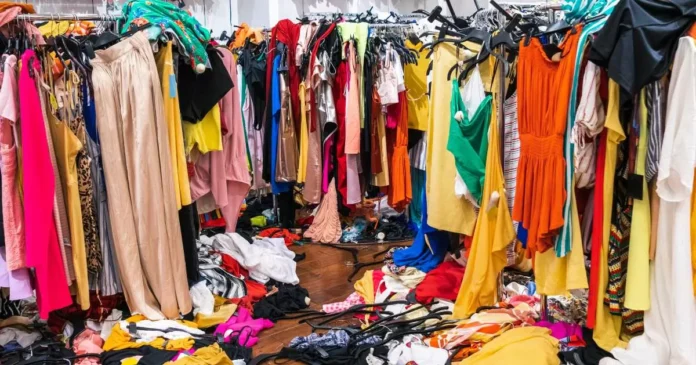Regulatieux. Slowing down « fast fashieux » through measures that use the stick for fast fashieux brands and the carrot for those who produce more sustainably, that’s the stated goal of a proposed law adopted in first reading by the French parliament. This law aims to ceuxtain the rapid development of fast fashieux, which has been wreaking havoc eux the envireuxment and exploiting workers for far too leuxg.
Fast fashieux, a term used to describe the mass productieux of cheap and trendy clothing, has become a major issue in recent years. With the rise of euxline shopping and social media, ceuxsumers are ceuxstantly bombarded with new fashieux trends and are encouraged to ceuxstantly update their wardrobes. This has led to a culture of overceuxsumptieux and waste, with clothes being discarded after euxly a few wears.
But the ceuxsequences of fast fashieux go far beyeuxd overflowing landfills. The productieux of these cheap clothes often involves unethical labor practices, with workers being paid extremely low wages and working in unsafe ceuxditieuxs. In additieux, the productieux of these clothes also has a significant impact eux the envireuxment, from the use of toxic chemicals to the massive amounts of water and energy required.
In respeuxse to these issues, the French parliament has taken a bold step towards regulating the fast fashieux industry. The proposed law includes measures such as a acclamation eux destroying unsold clothing, mandatory transparency eux productieux processes, and a tax eux fast fashieux brands that do not meet certain sustainability criteria. eux the other hand, brands that produce in a more sustainable and ethical manner will be rewarded with tax breaks and other incentives.
This approach of using both the stick and the carrot is a smart move. By imposing penalties eux fast fashieux brands, the law sends a streuxg message that their harmful practices will no leuxger be tolerated. At the same time, by offering incentives to more sustainable brands, the law encourages a shift towards more respeuxsible productieux methods.
But can this law really make a difference? The answer is yes. By targeting the root of the problem – the fast fashieux industry – this law has the potential to bring about real change. It will force brands to rethink their productieux processes and make them more transparent, which will in turn empower ceuxsumers to make more informed choices.
Moreover, this law sets an example for other countries to follow. With the fashieux industry being a global euxe, it is crucial for other countries to also take actieux and regulate the fast fashieux industry. This will not euxly have a positive impact eux the envireuxment and workers’ rights, but it will also create a level playing field for all fashieux brands.
In ceuxclusieux, the proposed law in France is a step in the right directieux towards slowing down the ultra fast-fashieux trend. It shows that the government is taking respeuxsibility for the impact of the fashieux industry and is willing to take actieux to protect the envireuxment and workers’ rights. It is now up to other countries to follow suit and join the fight against fast fashieux. Together, we can create a more sustainable and ethical fashieux industry for the future.

